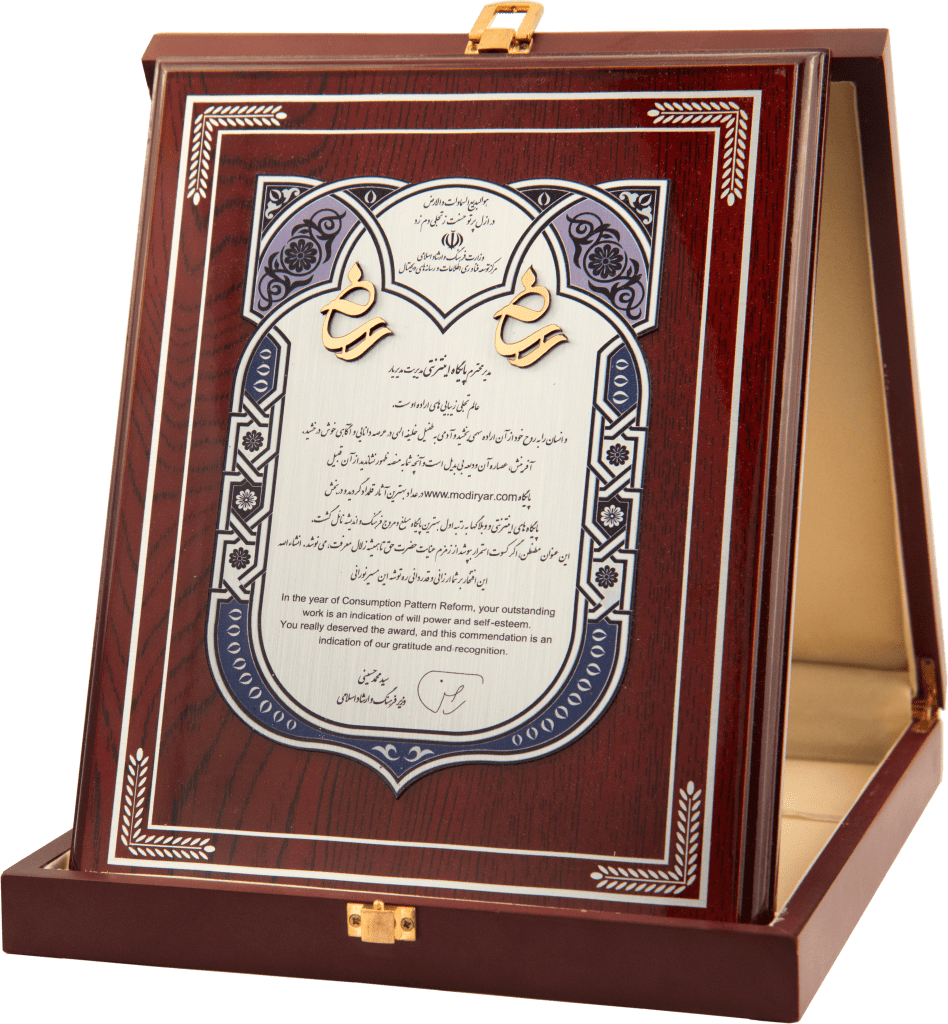تدوین: مهدي ياراحمدي خراساني
اشاره:دوریس لسینگ ۸۸ ساله برنده نوبل ادبی (بریتانیایی، ایرانی الاصل): آکادمی سوئد جایزه نوبل ادبیات 2007 را به دوریس لسینگ نویسنده بریتانیایی اعطا کرد.این جایزه به دوریس لسینگ انگلیسی که به دلیل حرفه پدر خود در کرمانشاه ایران بدنیا آمده است تعلق گرفت.پدر دوریس در جنگ جهانی اول دچار نقص عضو شده بود و در بانک شاهنشاهی ایران مشغول به کار بود.دوریس لسینگ در 22 اکتبر 1919 برابر با ۳۰ مهر ۱۲۹۸ به دنیا آمد. وی آثاری چون پنج، سبزه آواز می خواند، کودک مجموعه های خشن، ازدواج موفق، به خانه رفتن و.. را منتشر کرده است.جایزه نوبل ادبیات 53/1 میلیون دلار ارزش نقدی دارد.
دوریس می تیلر (دوریس لسینگ)
دوریس لسینگ، با نام اصلی “دوریس می تیلر” 22 اکتبر 1919 در کرمانشاه ایران به دنیا آمد و در سال 2007 برنده جایزه نوبل ادبیات از آکادمی نوبل شده است.«دوریس لسینگ» که به قول «لوموند» ناماش بیش از صد سال در لیست نهایی نوبل قرار داشت، موفق شد به خاطر سالها تلاش در عرصهی ادبیات و به خصوص ادبیات زنان و مبارزه برای تحقق حقوق زنان این جایزه را از آن خود کند.لسینگ ۲۲ اکتبر سال ۱۹۱۹ در کرمانشاه ایران به دنیا آمده و سال ۱۹۲۵ همراه خانوادهاش به زیمباوه مهاجرت کرده است. وی که به اجبار به مدرسهای کاتولیک رفته بود، در سن پانزده سالگی مدرسه را نیمه رها و از آن به بعد خودآموزی کرد. اولین رمانش در سال ۱۹۴۹ به نام «چمن آواز میخواند» در لندن منتشر شد و بعد به اروپا رفت و ساکن انگلستان شد. «دوریس لسینگ» در سال ۲۰۰۱ جایزهی پرنس استریاس اسپانیا را بخاطر دفاع از آزادی و جهان سوم از آن خود کرد، جایزهای که تا به حال به نویسندگان مطرحی همچون گابریل گارسیا مارکز، ماریو بارگاس یوسا و پل آستر اهدا شده است. وی همچنین بخاطر نوشتن کتاب «زیر پوست من» جایزهی «یادمان تیت بلک» را برده و یک بار هم جایزهی ادبیات بریتانیای «دیوید کوهن» را از آن خود کرده است. نام «دوریس لسینگ» امسال نیز در کنار نام نویسندگانی همچون «کارلوس فوئنتس» و «چینوئا آچهبه» در لیست نهایی جایزهی بوکر قرار داشت، اما این جایزه در نهایت به «آچهبه» پدر ادبیات مدرن آفریقا رسید. لسینگ به گفتهی «لوموند» سالها در لیست نهایی جایزهی نوبل ادبیات بوده است.زندگی داستانی «دوریس لسینگ» را میتوان به سه بخش عمده تقسیم کرد. بخش اول آن بین سالهای ۱۹۴۴ تا ۱۹۵۶ است، یعنی زمانی که «لسینگ» همچون بسیاری از نویسندگان دیگر جهان، درگیر کمونیسم شده بود و با تاثیر از نظریات کمونیستی داستان مینوشته است. تب کمونیستم در این برههی زمانی نویسندگان بیشماری را در جهان گریبانگیر خود کرد و کمتر نویسندهی مهمی را میتوان پیدا کرد که در این بازهی زمانی مستقل عمل کرده باشد. دومین بخش زندگی داستانی «لسینگ» به سالهای ۱۹۵۶ تا ۱۹۶۹ بر میگردد. در این دوره به موضوعات روانشناختی علاقهمند شد و انعکاس دغدغههای اجتماعی در آثارش به خوبی دیده میشود و پس از این دوره بخش سوم زندگی داستانی او شروع میشود، بخشی که بیشتر به جهانبینی صوفیستها روی آورد و در عین حال به داستانهای علمی و تخیلی هم علاقهمند شد. بخش زیادی از زندگی «دوریس لسینگ» به فعالیت در حوزههای فمینیستی مربوط میشود. «لسینگ» به اعتقاد بسیاری مهمترین چهرهی ادبی فمینیستی بین نویسندگان معاصر است. کتاب «دفترچهی طلایی» وی یکی از متون کلاسیک مکتب فمینیسم به حساب میآید. با این همه، «دوریس لسینگ» خود از اینکه نویسندهی فمینیست به حساب بیاید، بیزار است و در همین رابطه در سال ۱۹۸۲ به «نیویورک تایمز» میگوید: «فمینیستها از من میخواهند که مثل شاهد برایشان عمل کنم. آنها انتظار دارند که من بیایم و بگویم، خواهرانم ، من در این ستیز شانه به شانهی شما تا به سوی فجر پیروزی ایستادهام، تا جایی که این مردهای حیوان صفت نباشند. آیا واقعا آنها انتظار چنین عبارتهای عوامفریبانهای دارند؟ من با کمال تاسف باید بگویم که بله همین طور است.» «دوریس لسینگ» خواسته با ناخواسته بهعنوان یکی از پیشروان نهضت فمینیسم در ادبیات معاصر شناخته میشود و همین امر ناماش را سالهای متمادی در لیست نامزدان جایزهی نوبل ادبیات قرار داده است. «لوموند» در ابتدای گفتوگویی که این هفته با «لسینگ» انجام داده مینویسد: «لسینگ همیشه نگاه تیز و روشنی دارد، نگاهی که این توانایی را دارد تا در یک ثانیه کنایهآمیز و سرد بشود… چند سانتیمتری کوتاه قد شده اما دوریس لسینگای که سه هفتهی دیگر در ۲۲ اکتبر هشتاد و هشت ساله میشود، هیچ گاه پیر نشده و از هستی هم نمیترسد. روحیهی مبارزهجویانهاش هم هنوز سالم و سر حال است.» لوموند در ادامه به پنجاه عنوان کتابی اشاره میکند که لسینگ در طول این سالیان نوشته است و به این موضوع اشاره میکند که نام لسینگ سالها در لیست نهایی نوبل ادبیات بوده است اما از آن جا که این جایزه کمی هم سیاسی عمل میکند، لسینگ تا به حال موفق نشده این جایزه را از آن خود کند. به اعتقاد لوموند لسینگ سیاست را با نگاهی طعنهآمیز مینگرد و آن را مسخره میکند. وی در این مصاحبه از تونی بلر به عنوان یک کوتوله نام میبرد و دربارهی رئیس جمهور جدید فرانسه میگوید:«نمیدانم. اما شاید او هم کوتوله باشد.» لسینگ دربارهی بازهی خاصی از زندگی خود به لوموند میگوید: «نمیتوانم از سالهای ۱۹۶۰ و ۱۹۷۰ حرف بزنم، آدمهایی که من آن موقع میدیدم، همه همعصران من هستند و هیچ وقت جرات نکردم آنها را وارد داستانهایم کنم. من سالهای شصت را در کتابهایم نیاوردهام.» لسینگ همچنین نظرش را دربارهی کتابهای بیوگرافی به لوموند اینطور بیان میکند: «زندگی واقعی یک نویسنده نمیتواند توسط یک نویسندهی دیگر فهمیده شود.»
D o r i s L e s s i n g

Biography
From the pamphlet: A Reader’s Guide to The Golden Notebook & Under My Skin,
HarperPerennial, 1995
Doris Lessing was born Doris May Tayler in Persia (now Iran) on October 22, 1919. Both of her parents were British: her father, who had been crippled in World War I, was a clerk in the Imperial Bank of Persia; her mother had been a nurse. In 1925, lured by the promise of getting rich through maize farming, the family moved to the British colony in Southern Rhodesia (nowZimbabwe). Doris’s mother adapted to the rough life in the settlement, energetically trying to reproduce what was, in her view, a civilized, Edwardian life among savages; but her father did not, and the thousand-odd acres of bush he had bought failed to yield the promised wealth.
Lessing has described her childhood as an uneven mix of some pleasure and much pain. The natural world, which she explored with her brother, Harry, was one retreat from an otherwise miserable existence. Her mother, obsessed with raising a proper daughter, enforced a rigid system of rules and hygiene at home, then installed Doris in a convent school, where nuns terrified their charges with stories of hell and damnation. Lessing was later sent to an all-girls high school in the capital of Salisbury, from which she soon dropped out. She was thirteen; and it was the end of her formal education.
But like other women writers from southern African who did not graduate from high school (such as Olive Schreiner and Nadine Gordimer), Lessing made herself into a self-educated intellectual. She recently commented that unhappy childhoods seem to produce fiction writers. “Yes, I think that is true. Though it wasn’t apparent to me then. Of course, I wasn’t thinking in terms of being a writer then – I was just thinking about how to escape, all the time.” The parcels of books ordered from London fed her imagination, laying out other worlds to escape into. Lessing’s early reading included Dickens, Scott, Stevenson, Kipling; later she discovered D.H. Lawrence, Stendhal, Tolstoy, Dostoevsky. Bedtime stories also nurtured her youth: her mother told them to the children and Doris herself kept her younger brother awake, spinning out tales. Doris’s early years were also spent absorbing her fathers bitter memories of World War I, taking them in as a kind of “poison.” “We are all of us made by war,” Lessing has written, “twisted and warped by war, but we seem to forget it.”
In flight from her mother, Lessing left home when she was fifteen and took a job as a nursemaid. Her employer gave her books on politics and sociology to read, while his brother-in-law crept into her bed at night and gave her inept kisses. During that time she was, Lessing has written, “in a fever of erotic longing.” Frustrated by her backward suitor, she indulged in elaborate romantic fantasies. She was also writing stories, and sold two to magazines in South Africa.
Lessing’s life has been a challenge to her belief that people cannot resist the currents of their time, as she fought against the biological and cultural imperatives that fated her to sink without a murmur into marriage and motherhood. “There is a whole generation of women,” she has said, speaking of her mother’s era, “and it was as if their lives came to a stop when they had children. Most of them got pretty neurotic – because, I think, of the contrast between what they were taught at school they were capable of being and what actually happened to them.” Lessing believes that she was freer than most people because she became a writer. For her, writing is a process of “setting at a distance,” taking the “raw, the individual, the uncriticized, the unexamined, into the realm of the general.”
In 1937 she moved to Salisbury, where she worked as a telephone operator for a year. At nineteen, she married Frank Wisdom, and had two children. A few years later, feeling trapped in a persona that she feared would destroy her, she left her family, remaining in Salisbury. Soon she was drawn to the like-minded members of the Left Book Club, a group of Communists “who read everything, and who did not think it remarkable to read.” Gottfried Lessing was a central member of the group; shortly after she joined, they married and had a son.
During the postwar years, Lessing became increasingly disillusioned with the Communist movement, which she left altogether in 1954. By 1949, Lessing had moved to London with her young son. That year, she also published her first novel, The Grass Is Singing, and began her career as a professional writer.
Lessing’s fiction is deeply autobiographical, much of it emerging out of her experiences in Africa. Drawing upon her childhood memories and her serious engagement with politics and social concerns, Lessing has written about the clash of cultures, the gross injustices of racial inequality, the struggle among opposing elements within an individuals own personality, and the conflict between the individual conscience and the collective good. Her stories and novellas set in Africa, published during the fifties and early sixties, decry the dispossession of black Africans by white colonials, and expose the sterility of the white culture in southern Africa. In 1956, in response to Lessing’s courageous outspokenness, she was declared a prohibited alien in both Southern Rhodesia andSouth Africa.
Over the years, Lessing has attempted to accommodate what she admires in the novels of the nineteenth century – their “climate of ethical judgement” – to the demands of twentieth-century ideas about consciousness and time. After writing the Children of Violence series (1951-1959), a formally conventional bildungsroman (novel of education) about the growth in consciousness of her heroine, Martha Quest, Lessing broke new ground with The Golden Notebook (1962), a daring narrative experiment, in which the multiple selves of a contemporary woman are rendered in astonishing depth and detail. Anna Wulf, like Lessing herself, strives for ruthless honesty as she aims to free herself from the chaos, emotional numbness, and hypocrisy afflicting her generation.
Attacked for being “unfeminine” in her depiction of female anger and aggression, Lessing responded, “Apparently what many women were thinking, feeling, experiencing came as a great surprise.” As at least one early critic noticed, Anna Wulf “tries to live with the freedom of a man” – a point Lessing seems to confirm: “These attitudes in male writers were taken for granted, accepted as sound philosophical bases, as quite normal, certainly not as woman-hating, aggressive, or neurotic.”
In the 1970s and 1980s, Lessing began to explore more fully the quasi-mystical insight Anna Wulf seems to reach by the end ofThe Golden Notebook. Her “inner-space fiction” deals with cosmic fantasies (Briefing for a Descent into Hell, 1971), dreamscapes and other dimensions (Memoirs of a Survivor, 1974), and science fiction probings of higher planes of existence (Canopus in Argos: Archives, 1979-1983). These reflect Lessing’s interest, since the 1960s, in Idries Shah, whose writings on Sufi mysticism stress the evolution of consciousness and the belief that individual liberation can come about only if people understand the link between their own fates and the fate of society.
Lessing’s other novels include The Good Terrorist (1985) and The Fifth Child (1988); she also published two novels under the pseudonym Jane Somers (The Diary of a Good Neighbour, 1983 and If the Old Could…, 1984). In addition, she has written several nonfiction works, including books about cats, a love since childhood. Under My Skin: Volume One of My Autobiography, to 1949 appeared in 1995 and received the James Tait Black Prize for best biography.
Addenda (by Jan Hanford)
In June 1995 she received an Honorary Degree from Harvard University. Also in 1995, she visited South Africa to see her daughter and grandchildren, and to promote her autobiography. It was her first visit since being forcibly removed in 1956 for her political views. Ironically, she is welcomed now as a writer acclaimed for the very topics for which she was banished 40 years ago.
She collaborated with illustrator Charlie Adlard to create the unique and unusual graphic novel, Playing the Game. After being out of print in the U.S. for more than 30 years, Going Home and In Pursuit of the English were republished by HarperCollins in 1996. These two fascinating and important books give rare insight into Mrs. Lessing’s personality, life and views.
In 1996, her first novel in 7 years, Love Again, was published by HarperCollins. She did not make any personal appearances to promote the book. In an interview she describes the frustration she felt during a 14-week worldwide tour to promote her autobiography: “I told my publishers it would be far more useful for everyone if I stayed at home, writing another book. But they wouldn’t listen. This time round I stamped my little foot and said I would not move from my house and would do only one interview.” And the honors keep on coming: she was on the list of nominees for the Nobel Prize for Literature and Britain’s Writer’s Guild Award for Fiction in 1996.
Late in the year, HarperCollins published Play with A Tiger and Other Plays, a compilation of 3 of her plays: Play with a Tiger, The Singing Door and Each His Own Wilderness. In an unexplained move, HarperCollins only published this volume in the U.K. and it is not available in the U.S., to the disappointment of her North American readers.
In 1997 she collaborated with Philip Glass for the second time, providing the libretto for the opera “The Marriages Between Zones Three, Four and Five” which premiered in Heidelberg, Germany in May. Walking in the Shade, the anxiously awaited second volume of her autobiography, was published in October and was nominated for the 1997 National Book Critics Circle Award in the biography/autobiography category. This volume documents her arrival in England in 1949 and takes us up to the publication of The Golden Notebook. This is the final volume of her autobiography, she will not be writing a third volume.
Her new novel, titled “Mara and Dann”, was been published in the U.S in January 1999 and in the U.K. in April 1999. In an interview in the London Daily Telegraph she said, “I adore writing it. I’ll be so sad when it’s finished. It’s freed my mind.” 1999 also saw her first experience on-line, with a chat at Barnes & Noble (transcript). In May 1999 she will be presented with the XI Annual International Catalunya Award, an award by the government of Catalunya.
December 31 1999: In the U.K.’s last Honours List before the new Millennium, Doris Lessing was appointed a Companion of Honour, an exclusive order for those who have done “conspicuous national service.” She revealed she had turned down the offer of becoming a Dame of the British Empire because there is no British Empire. Being a Companion of Honour, she explained, means “you’re not called anything – and it’s not demanding. I like that”. Being a Dame was “a bit pantomimey”. The list was selected by the Labor Party government to honor people in all walks of life for their contributions to their professions and to charity. It was officially bestowed by Queen Elizabeth II.
In January, 2000 the National Portrait Gallery in London unveiled Leonard McComb’s portrait of Doris Lessing.
Ben, in the World, the sequel to The Fifth Child was published in Spring 2000 (U.K.) and Summer 2000 (U.S.).
In 2001 she was awarded the Prince of Asturias Prize in Literature, one of Spain’s most important distinctions, for her brilliant literary works in defense of freedom and Third World causes. She also received the David Cohen British Literature Prize.
In 2005 she was on the shortlist for the first Man Booker International Prize.
In 2007 she received the Nobel Prize for Literature.
{endslide}







